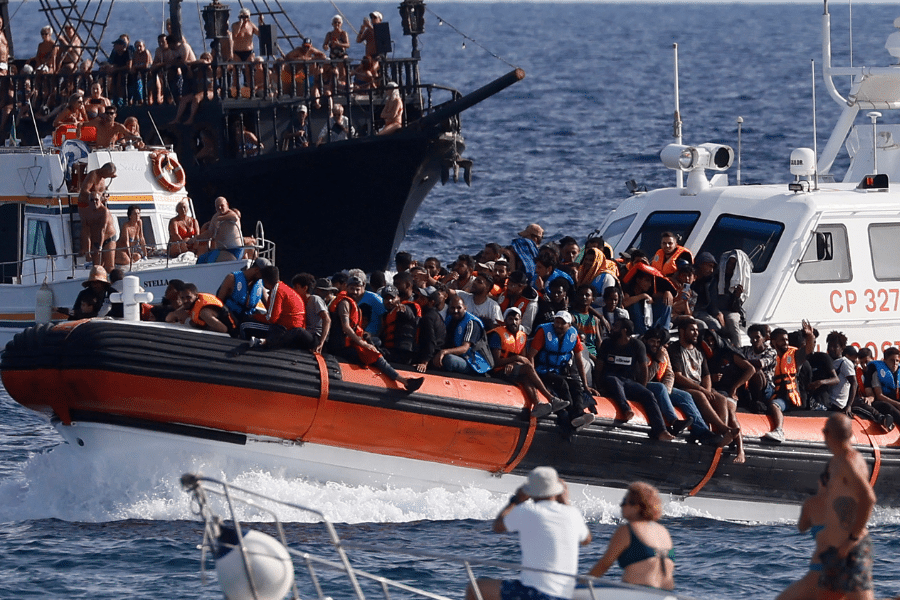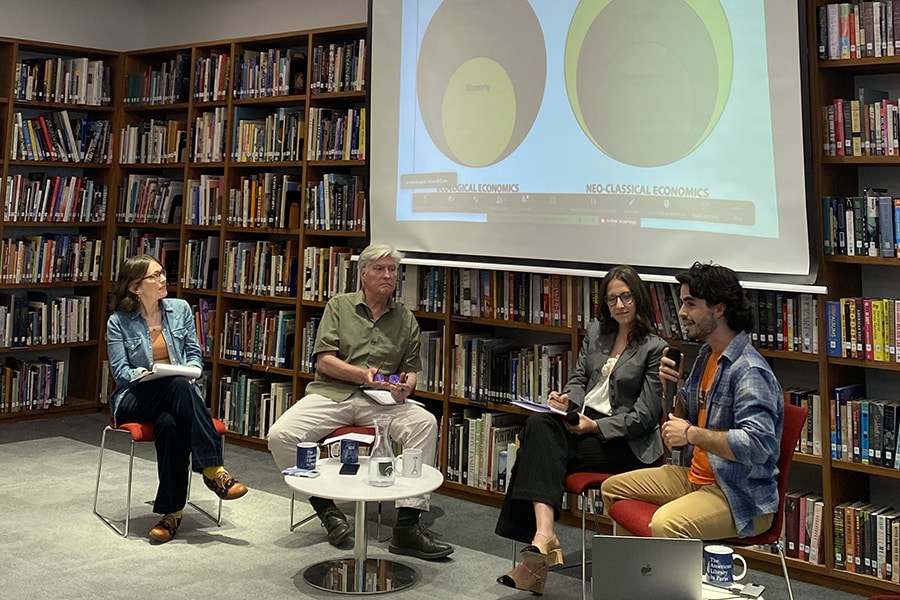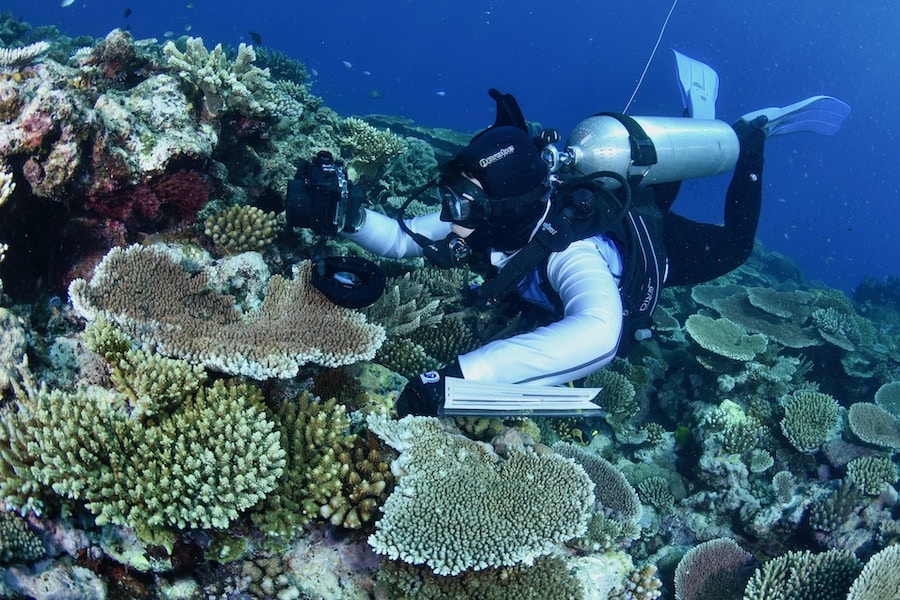
by Tiziana Barghini | 6 Nov 2023 | Economy, Educators' Catalog, Italy, Nationalism
Depopulation threatens the long term economic health of developed nations. At some point they will have to open their borders. An Italian Coast Guard boat carries migrants as tourists on boat, foreground, watch, near the port of the Sicilian island of Lampedusa,...
In this Decoder, correspondent Tiziana Barghini covers why changing demographics, increased life expectancy and outdated public policies may spell trouble for developed nations. Migration may be the solution.
Exercise: Using a word cloud generator or class participation tool like Mentimeter, have students contribute words that they think of when they hear the word “immigration” or “migration”. Create a word cloud with these words before reading the article as a class. Then, after reading the article, have students consider how their perspective on migration might have changed. Create a post-read word cloud and discuss what new insights students have learned from the article.

by Susanne Courtney | 22 Sep 2023 | Climate decoders, Decoders, Economy, Educators' Catalog, Environment, Politics, World
The small island nation of Barbados is leading the call for international finance reform needed to fight the impacts of global warming. The world is listening. From the left, Prime Minister of Barbados Mia Mottley, Netherlands’ Minister of Finance Sigrid Kaag,...
June to August 2023 were the world’s hottest months on record, meaning the stakes are high to address climate change for all. This is especially true for small island nations and developing countries who do little to contribute to climate change, but disproportionately suffer its consequences. Correspondent Susanne Courtney digs into Barbados Prime Minister Mia Mottley’s plan to level the climate financing playing field in this Decoder.
Exercise: Inequities in climate financing loom large. Read the article with students, then have them explore this interactive visualization of historical greenhouse gas emissions by country and region. How does your country or region’s emissions compare to those of the world’s largest emitters? Create an infographic depicting this information, including a call to action for students to promote climate action in their local communities.

by Karolina Krakowiak | 1 Jun 2023 | Ecologues, Economy, Environment, News Decoder Updates, Writing's on the Wall
In the fifth of six monthly conversations, three experts ask: can the way nations spend money help bring about the change needed to cool the Earth? The fifth Ecologues discussion featured (right to left) Juan Pablo Arellano, Marlowe Hood and Bianca Getzel with...

by Richard Hubbard | 13 Feb 2023 | Climate decoders, Decoders, Economy, Educators' Catalog, Environment, Writing's on the Wall
The Great Barrier Reef isn’t just an endangered world wonder. Protecting the world’s largest coral reef system is also key to Australia’s economic growth. A diver swims past coral on the Great Barrier Reef in Australia, 18 October 2016. More than 90%...
Protecting the environment isn’t just the right thing to do, it can also be the profitable thing to do. Take the Great Barrier Reef, for example, which has an estimated value of $56 billion Australian dollars. Help your students disentangle the complicated world of environmental economics with this article.
Exercise: After reading the article, have students take the WWF Carbon Footprint questionnaire at https://footprint.wwf.org.uk/#/. The questionnaire estimates individuals’ carbon footprint, looking at food, travel, home and consumption habits. After the questionnaire, launch a class discussion on how changes in individual habits may contribute to fighting climate change — and might even be a profitable choice.

by Alan Wheatley | 23 Jan 2017 | Economy, United States
Donald Trump has promised to tackle economic inequalities. But his policies could deepen the gaping divide between the haves and the have-nots. Donald Trump delivers his Inaugural address, Washington, 20 January 2017 (EPA/Jim Lo Scalzo) A defining economic...





